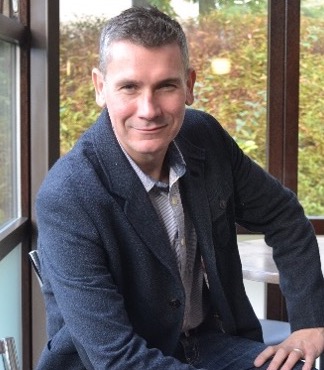In this Webinar I will discuss the complexity associated with some Pd-catalyzed cross-coupling reactions (e.g. in terms of Pd catalyst speciation and reaction outcomes). I will then describe how we have used the Chemspeed ISYNTH platform, in tandem with other techniques and methods, to examine a complicated Pd-catalyzed cross-coupling involving the reaction of two molecules of a 2-bromo-benzamide derivative to give a N-phenyl phenanthridinone product. The reaction is accompanied by a plethora of side-products, mainly as multiple sites can be activated, including C-Br, C-C, C-N, C-H and N-H bonds. The reaction is a valuable benchmark for understanding complex reaction systems and networks, from either mechanistic, discovery or safety perspectives. Automated high throughput experimentation methods, complemented by using both batch and flow screening technologies, have enabled a relatively broad reaction space to be explored, particularly in terms of reaction temperatures and different solvents over time, despite the reaction being of a heterogeneous nature. Data analysis of the reaction outcomes has allowed us to examine the factors contributing to the variance in product distributions, while revealing associations between solvents and reaction products. Our findings, taken together, offer an alternative approach to the study of topical Pd-catalyzed transformations.
Biography

Ian was born in 1975 in Crewe (Cheshire, England). As a young child Ian was allowed to roam-free, playing in ponds (mainly with rare newts and frogs), woods and fields for most of the time. Ian moved to Heathfield High School in 1986. Later on, as a teenager, he became a middle-distance runner for the City of Stoke Athletics Club. At high school Ian won the 1991 Harold Burns Trophy for Motor Vehicle Studies. While being very close to taking-up an apprenticeship working within the motor industry (at just 16 years old), Ian decided to follow interests in Chemistry, inspired by his then teacher, ‘Doc’ Michael Griffiths, which was a pivotal moment in his early career. Over the years Ian has been inspired by several great people, who have acted as mentors and extraordinary role models: Dr. Julia Dickinson (MMU), Prof. Guy Lloyd-Jones (Bristol, now Edinburgh), Prof. Richard Taylor and Robin Perutz (both York), and Prof. Todd Marder (Wurzburg, Germany).
Ian enjoys seeing his students flourish and them going on to greater things. 37 PhD students have completed their studies in the Fairlamb research group, with many of them going into academia, industry, government and other areas (e.g. Nuclear sector, National Health Service and Teaching).
In his spare time, Ian enjoys running with York Knavesmire Harriers and local races, and being involved with parkrun activities, both running and volunteering. Being close to the Potteries for most of his youth, Ian worked for a pottery company during vacation breaks while studying at University (from packing plates to analysing ceramic materials in the laboratory).
As time passes by Ian has developing interests in gardening and cooking. Holding on to his youth, Ian plays the guitar and makes useful things with Lego Technic (EV3 Mindstorms), the latter mainly for scientific outreach. Ian has showcased Lego robotics in large public-facing events to help inspire the use of robotics in chemistry.
Ian did his BSc and PhD at Manchester Metropolitan University, working with Dr. Julia Dickinson on squalene synthase inhibitors. He was a PDRA working with Prof. Guy Lloyd-Jones at the University of Bristol (2000-1), working on mechanisms in Pd catalysed reactions. He started an independent academic career in York in 2001, and was awarded a Royal Society University Research Fellowship in 2004 (to 2012). He was promoted to a Personal Chair in Organic Chemistry in January 2010, at the University of York. Research awards include the 2003 RSC Meldola Medal for organic chemistry, the 2007 Astra Zeneca younger researcher award, the 2016 RSC Corday-Morgan Prize and Medal, the 2019 Process Chemistry GSK-Pfizer-Syngenta Award and most recently a 2021 RSC Horizons Prize (team prize) for mechanistic work in manganese catalysis, particularly time-resolved spectroscopic measurements.
Watch a recording of the presentation below:




